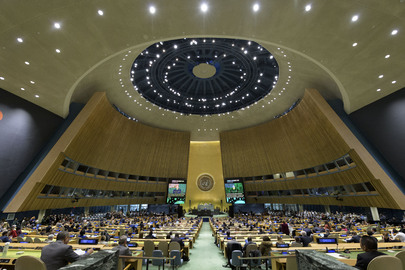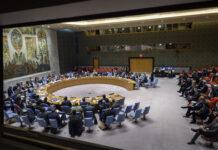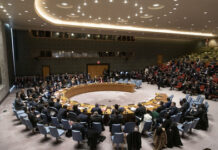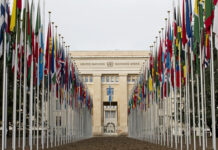This the News in Brief from the United Nations.
Severe malnutrition soars in Gaza: WHO chief
Severe malnutrition in Gaza has soared to 15 per cent from just one per cent of the population before the war, according to the World Health Organization (WHO) chief, Tedros Adhanom Ghebreyesus.
Briefing journalists in Geneva on Wednesday, Tedros said health facilities were struggling to stay open while health workers face the risk of daily bombardment as they carry out their lifesaving work.
At the same time, he said the UN World Food Programme (WFP) is unable to safely access northern Gaza to deliver badly needed assistance.
Tedros called on combatants to stop the bombing, reiterating the need for a ceasefire so that humanitarian aid can be delivered at scale.
Turning to the fighting in Sudan, Tedros said the country was witnessing a humanitarian catastrophe which has created the largest displacement crisis in the world. Over six million people have been displaced internally.
WHO is scaling up efforts to respond to disease outbreaks and provide lifesaving medical supplies, including in Darfur and Kordofan, he said.
He stressed that if the world continues to turn a blind eye, many more will die.
US companies dump ‘forever chemicals’ with impunity: UN experts
In the United States, the DuPont and Chemours chemical companies are dumping toxic so-called “forever chemicals” into the local environment, completely disregarding the rights and wellbeing of residents along the lower Cape Fear River in North Carolina.
That’s according to independent UN human rights experts, who released a statement on Wednesday warning of the dangerous effects from the chemicals, commonly referred to as PFAs, or polyfluoroalkyl substances, and said members of impacted communities have reportedly been denied access to clean and safe water for decades.
PFAs come from products such as shampoo, nail polish and the synthetic coating on carpets or fabrics.
They are known as forever chemicals because they do not easily degrade in nature and can cause harm for decades, even centuries.
Even though the companies are aware of the toxic impact of PFAs, they continue to discharge them, the experts said.
They also raised alarm over exports of PFAs and hazardous waste from the Netherlands to the United States, in apparent breach of international law.
The experts said enforcement and remediation measures have been inadequate where legal action has been taken against the two companies.
Health and environmental regulators in the US have fallen short in their duty to protect against business-related human rights abuses, they said.
The UN Human Rights Council-appointed independent experts have raised these concerns with the US Government, which has yet to reply.
International Mother Language Day
Finally, Wednesday is International Mother Language Day, and education, science and culture agency UNESCO is calling on all countries to pursue a policy of multilingual education.
That’s because it’s key to fighting the current global learning crisis, having produced positive results in the past.
According to a recent agency study, children are more likely to start reading earlier when they are taught in their mother tongue during the earliest school years.
Proof can be found across Africa. The continent has the world’s highest linguistic diversity, but only one in five children are taught their mother tongue.
To change that, Mozambique expanded bilingual learning to a quarter of its schools, and children are already performing around 15 per cent better in basic reading and mathematics, UNESCO said.
While people communicate in more than 6,700 languages around the world, 40 per cent of them are threatened with extinction in the long term, due to falling numbers of speakers.
Matt Wells, UN News.
Source of original article: United Nations (news.un.org). Photo credit: UN. The content of this article does not necessarily reflect the views or opinion of Global Diaspora News (www.globaldiasporanews.com).
To submit your press release: (https://www.globaldiasporanews.com/pr).
To advertise on Global Diaspora News: (www.globaldiasporanews.com/ads).
Sign up to Global Diaspora News newsletter (https://www.globaldiasporanews.com/newsletter/) to start receiving updates and opportunities directly in your email inbox for free.

































